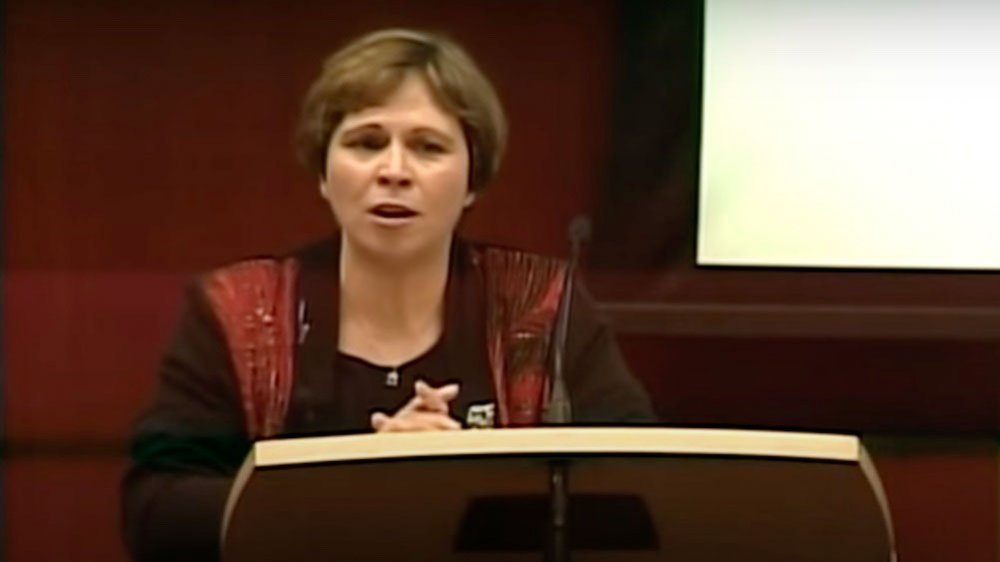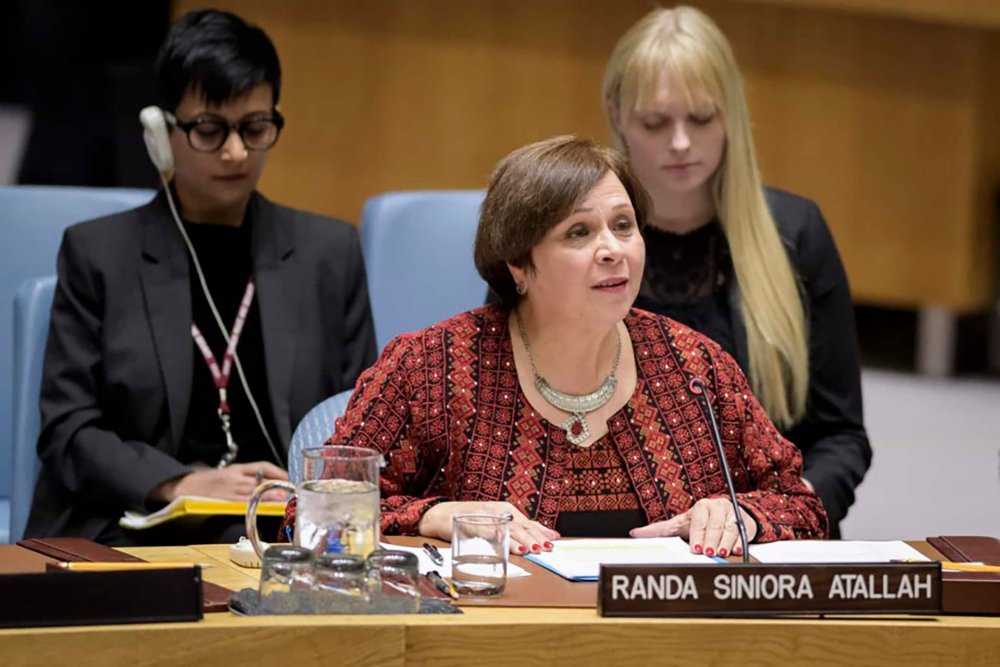Randa George Yacoub Siniora (b. 1961) is a human rights and women’s rights activist. She is the general director of the Women’s Centre for Legal Aid and Counselling (WCLAC) in Jerusalem and has documented human rights violations across the occupied territories for more than three decades. She was the first Palestinian woman from a civil society organization to brief the United Nations (UN) Security Council.
Early Life and Education
From 1965 to 1979, Siniora attended Schmidt’s Girls College in East Jerusalem, an international German school. Early in life, she noticed that males had preferential treatment in Palestinian society, which triggered her interest in women’s rights. She’s since focused on promoting feminist issues in Palestine.
In 1983, Siniora graduated from Birzeit University in Ramallah with a bachelor’s degree in sociology-anthropology and economic sociology. In 1984, she moved to Cairo, Egypt, to work on a master’s degree in sociology-anthropology at the American University in Cairo (AUC).
Her first foray into the Palestinian human rights and feminist movement was in 1985, when she was researching her MA thesis on women textile workers in West Bank factories that produced goods for Israeli companies. (The thesis was later published by AUC.1) Siniora found that
employers need not use force in order to control . . . workers. Instead, they continuously try to establish a paternalistic relationship with [them]. They try to convince them that they are in the position of their fathers at the workshop, and that they are their “supporters” and “protectors.”2
After receiving her master’s degree from AUC in 1987, Siniora worked at al-Haq—Law in the Service of Man, an independent Palestinian NGO that defends human rights in Palestine, as the legal researcher and coordinator of the Women’s Rights Program. There, she received a thorough education in the discriminatory laws, legislation, and policies that put Palestinian women at a disadvantage.
When the First Intifada began in 1987, her efforts to build a consensus around the need for legal protection of women were interrupted. As she explained, “It became impossible to focus exclusively on legal and social aspects of women’s rights, with human-rights violations taking place against Palestinian women every day. Now our main task is documenting those violations.”3
In 1994, Siniora went to the University of Essex in Colchester to complete a Master of Laws program in international human rights law. Her dissertation focused on state responsibility to protect victims of gender-based violence. Many years later, when asked to explain her involvement in women’s rights issues, she said: “I realised that official duty-bearers are complicit and violate women’s rights by omission if they do not set forth laws, policies, and measures to protect victims of domestic violence.”4
The combination of activism and academic training has made Siniora a respected voice on human and women’s rights in Palestine.
Career
From 1998 to 2001, Siniora served as the head of networking and advocacy at the WCLAC, an independent Palestinian not-for-profit NGO established in 1991 in Jerusalem by Maha Abu Dayyeh that promotes the principles of gender equality and social justice for the ultimate goal of developing a democratic Palestinian society.
According to its website, WCLAC
aims to address the causes and consequences of gender-based violence within the Palestinian community as well as the gender-specific effects of increasing militarisation associated with the Israeli occupation. To this end, WCLAC acts not only to reverse historical negligence, negative cultural legacies and discriminatory social attitudes towards Palestinian women, but also, to address the needs of women victimised by Israel’s violent actions in the occupied Palestinian Territories (oPT).5
In this role, Siniora focused on change at the legislative and institutional level through lobbying and documentation.
From 2001 to 2005, Siniora worked as the general director of al-Haq—Law in the Service of Man. Here she oversaw the organization’s work protecting human rights and the rule of law in the occupied Palestinian Territories (oPT), and built relations with Palestinian civil society organizations to ensure international human rights standards are reflected in Palestinian laws and policies.
In October 2005, Siniora was invited by the International Law Society at the Duke University Law School in Durham, North Carolina, to address students there. She spoke about how women are struggling with dual systems of oppression in the oPT, and how collective punishment in the form of mass arrests, house demolitions, movement restrictions, property destruction, and annexation is used by the Israeli military to exert control over the population.6
Notes
Randa George Siniora, Palestinian Labor in a Dependent Economy: Women Workers in the West Bank Clothing Industry, Cairo Papers in Social Science, vol. 12, monograph 3 (Cairo: American University in Cairo Press, 1990).
Quoted in Joost R. Hiltermann, Behind the Intifada: Labor and Women's Movements in the Occupied Territories (Princeton: Princeton University Press, 1993), 29, 36.
Quoted in Adam Jones, The Scourge of Genocide: Essays and Reflections (New York: Routledge, 2013), 302–3.
“Inspirational Interviews: Randa Siniora, General Director, Women’s Centre for Legal Aid and Counselling (WLAC), Palestine—Part I,” The Pixel Project, September 25, 2022.
“Siniora Randa, General Director of Al Haq,” Duke University School of Law, October 20, 2005.
“Inspirational Interviews.”
“Randa Sioniora,” Mujares al-Fuente, April 12, 2023.
“Jerusalem Women,” Women’s Centre for Legal Aid and Counselling.
“Statement by Ms. Randa Siniora at UN Security Council Open Debate on Women, Peace and Security,” Working Group on Women, Peace and Security, October 25, 2018.


